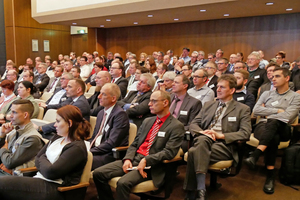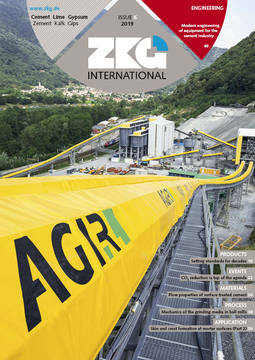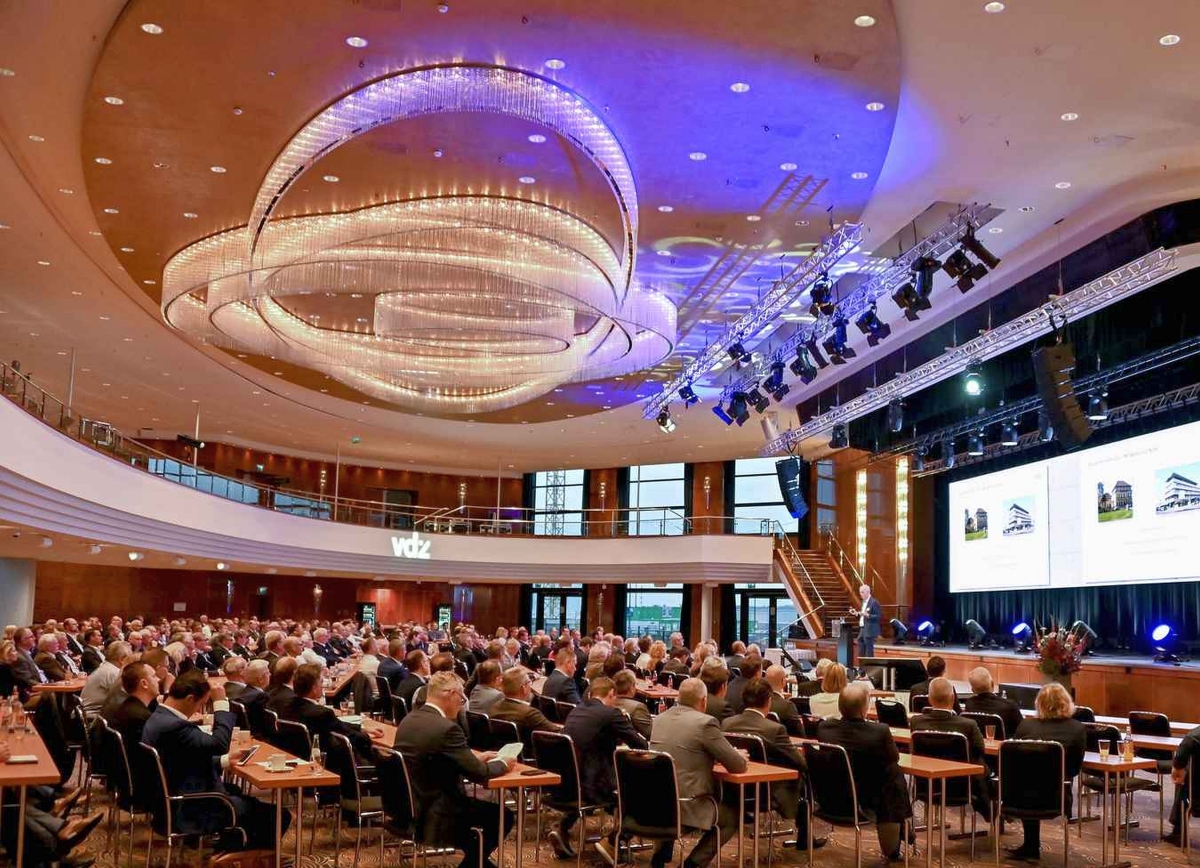CO2 reduction is top of the agenda in the industry
On 28.03.2019, around 130 representatives from the German cement industry and associated suppliers, as well as from scientific and research institutes, gathered for the VDZ Conference on Cement Chemistry 2019 in Duesseldorf/Germany.
Dr. Martin Schneider and Dr. Jörg Rickert, both VDZ, were delighted about the great response which clearly shows the importance of such conferences as link between joint research and the requirements of everyday practice in cement plants. A special honour was the attendance of Prof. Dr.-Ing. Siegbert Sprung.
With a report on the activities of the Cement Chemistry committee, Dr. Wolfgang Dienemann, HeidelbergCement AG, opened the programme. The general work of the committee includes supporting of internal and external research projects, standardisation activities and assessment of round robin tests. External research projects are currently supported at Clausthal University of Technology (“Inner particle distribution of multi-composite cements”) and at the Technical University of Munich (“Boundary surface influences in concrete on the penetration behaviour of salts”). Internal work is underway on clinker efficient cements with several main components and their use in concrete. It was explained that the topic of CO2 is significantly changing the industry. The programme of the conference was compiled in line with the central idea of finding and implementing solutions for CO2 reduction.
In his paper, Stefan Ventur, HeidelbergCement AG, informed attendees about “Changes in the production process and their influence on quality”. With reference to examples from the practice, he showed the influence of changes, for instance, in raw meal grinding, the fuels and cement grinding on cost efficiency and product quality. A checklist was presented to record and assess the impact of such changes.
Possible reasons of deviations from the expected Gaussian distribution of quality control results were the focus of Dr. Hendrik Möller, Schwenk Zement KG. He observed that, for example, the time of sampling and unsteady dispatches could have a considerable influence on the visual appearance of the frequency distribution. Intentional controlled interventions can also change the randomness of the database. Sampling time and grinding capacity should roughly fit with the dispatch characteristics.
The second session of papers centred on the topic of CO2. Dr. Werner Cordes, Portlandzementwerk Wittekind Hugo Miebach Söhne KG, gave an overview about general sociopolitical framework regarding the CO2-issues. Following a global overview of CO2 emissions, he concentrated his speech on the efforts and challenges for the cement industry. He pointed out that thermal efficiency in the cement industry was, compared with other industrial processes, already very high and the use of alternative fuels had a favourable effect on the CO2 footprint. Cordes maintained that without carbon capture technologies and a reliable protection against “Carbon Leakage”, the goal of climate neutrality could probably not be achieved.
The “Reduction of CO2 emissions in cement production” was addressed by Dipl.-Ing. Sussan Pasuki, HeidelbergCement AG. For efficient clinker production, for example, an optimized evaluation of the energy performance of the whole process is a precondition. With a checklist, kiln and mill performance can be continuously improved. This includes regular assessment of the energy consumption. Pasuki called on his colleagues to be very open to new ideas. She sees possibilities for CO2 reduction, for example, in the further increase in waste-derived fuels and raw materials, in clinker substitution, the development of new cements and in the differentiated use of cement in concrete acc. to its exposure class.
“CO2 reporting – analytics in the dilemma of legal requirements and normative regulations” was the topic addressed by Dr. Sabine Heuschkel, Märker Zement GmbH. She compared various measurement methods for different components. Heuschkel observed that administrative and analytical costs will increase further.
Dr. Dieter Israel, Dyckerhoff GmbH, posed the question “Dangerous substances – are our construction materials really dangerous?“ He provided an overview of the different testing methods and limits on environmental compatibility. He pointed out that this topic was very complex as national conditions differed, and no uniformity existed. Discussions were underway to anchor the environmental compatibility of construction materials in European product standards in future.
Thomas Schuster, Spenner Zementwerk Berlin GmbH & Co. KG, informed attendees about “The material potentials for clinker-efficient cements”. He pointed out that beside limestone, natural pozzolanas and calcined clay also recycled materials will be available in sufficient quantities to replace clinker in cement. To bring more clinker efficient cements into the market authorities should increasingly demand the use of such cements.
The final paper of the day was presented by Dr. Bernd Eber, Südbayerisches Portland-Zementwerk Gebr. Wiesböck & Co. GmbH, “Analysis of cement composition – standard procedures and alternatives from the field”. Eber gave an overview of the different analysis methods and their possibilities, and compared their accuracies.
//www.vdz-online.de" target="_blank" >www.vdz-online.de:www.vdz-online.de



